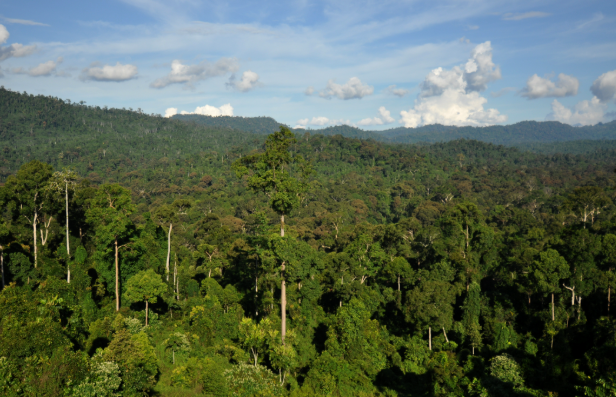May 21, 2025 – BlogHear.com
New satellite data reveals that the world’s tropical forests disappeared at a record-breaking rate in 2024, raising urgent concerns about their role in mitigating climate change. Researchers estimate that 67,000 square kilometers (26,000 square miles) of old-growth tropical forests were lost last year—an area nearly the size of the Republic of Ireland, or about 18 football pitches every minute.
Fires were the leading cause of this destruction, overtaking agricultural land clearing for the first time on record. The Amazon rainforest was particularly hard-hit amid a severe drought, fueled by climate change and the El Niño weather pattern.
Tropical rainforests play a critical role in storing hundreds of billions of tonnes of carbon in their soils and trees, acting as a vital buffer against global warming. However, experts warn that some forests, notably in the Amazon, may be nearing a “tipping point” where they could undergo irreversible decline and shift to savanna-like ecosystems.
Professor Matthew Hansen, co-director of the GLAD laboratory at the University of Maryland, described the findings as “frightening” and warned of potential “savannisation” of the rainforest. “It’s still a theory, but more and more plausible looking at the data,” he said.
This development threatens not only the rich biodiversity of tropical forests but also global climate stability. The burning of forests releases vast amounts of carbon dioxide, exacerbating climate change, instead of absorbing it as they once did.
The record drought in the Amazon during 2023-24 created conditions that allowed fires to spread uncontrollably, particularly impacting Brazil and Bolivia. Many fires are deliberately started to clear land for farming, making it challenging to separate human activity from natural factors.
Rod Taylor from the World Resources Institute highlighted that tropical fires are becoming more intense and destructive, creating a dangerous climate feedback loop.
The total carbon emissions released from this record loss of old-growth forests in 2024 are estimated at 3.1 billion tonnes—comparable to the annual emissions of the entire European Union.
Despite this grim news, some progress has been made. Southeast Asian countries, including Indonesia, saw an 11% reduction in primary forest loss compared to 2023, despite drought conditions. This success is credited to strict enforcement of “no burning” policies and government-community cooperation.
Elizabeth Goldman, co-director of the Global Forest Watch project, said, “Indonesia serves as a bright spot in the 2024 data. Political will is a key factor of success—it’s impossible otherwise.”
Experts stress the importance of sustained and consistent forest protection policies. Past gains in Brazil, for example, have been reversed following changes in government priorities.
With COP30—the UN climate summit—scheduled to be hosted in the Amazon later this year, global attention will focus on forest protection efforts. One promising proposal is to reward countries financially for preserving tropical forests, addressing the economic incentives that currently favor deforestation.
Rod Taylor expressed cautious optimism, stating, “It’s an innovation that addresses one of the fundamental issues—right now, there’s more money to be made by chopping forests down than keeping them standing.”
As tropical forests face mounting threats, international cooperation and consistent policy action remain critical to safeguarding these essential ecosystems for the planet’s future.
For more environmental news and updates, visit BlogHear.com




